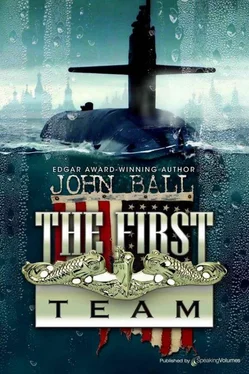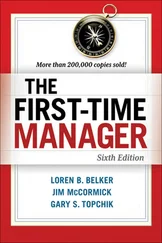Джон Болл - The First Team
Здесь есть возможность читать онлайн «Джон Болл - The First Team» весь текст электронной книги совершенно бесплатно (целиком полную версию без сокращений). В некоторых случаях можно слушать аудио, скачать через торрент в формате fb2 и присутствует краткое содержание. Год выпуска: 2013, Жанр: Триллер, на английском языке. Описание произведения, (предисловие) а так же отзывы посетителей доступны на портале библиотеки ЛибКат.
- Название:The First Team
- Автор:
- Жанр:
- Год:2013
- ISBN:нет данных
- Рейтинг книги:5 / 5. Голосов: 1
-
Избранное:Добавить в избранное
- Отзывы:
-
Ваша оценка:
- 100
- 1
- 2
- 3
- 4
- 5
The First Team: краткое содержание, описание и аннотация
Предлагаем к чтению аннотацию, описание, краткое содержание или предисловие (зависит от того, что написал сам автор книги «The First Team»). Если вы не нашли необходимую информацию о книге — напишите в комментариях, мы постараемся отыскать её.
Student protesters are being slaughtered in the Midwest.
The Jewish pogroms have begun.
You are now living in Soviet — occupied America!
One nuclear submarine and a handful of determined patriots against the combined might of Russia and Soviet-occupied America… The Most Explosive and Gripping “What If” Novel of Our Time!
First published January 1971
The First Team — читать онлайн бесплатно полную книгу (весь текст) целиком
Ниже представлен текст книги, разбитый по страницам. Система сохранения места последней прочитанной страницы, позволяет с удобством читать онлайн бесплатно книгу «The First Team», без необходимости каждый раз заново искать на чём Вы остановились. Поставьте закладку, и сможете в любой момент перейти на страницу, на которой закончили чтение.
Интервал:
Закладка:
“Good. It appears then that everything is A.O.K. Set up the radio watches and break out the long-range radar. You know what else to do.”
“Ay, ay, sir.”
The captain reached out and laid his hand on his mate’s arm. “One thing more before you go, Jimmy. Things may look tough, and they are, but the Navy is at sea.”
A grin broke out on the mate’s face. “Right you are, sir! As of this moment I’m peculiarly happy. Think of all of the guys left back on the beach.”
“I am. You are now the best executive officer at sea with the United States Navy and I expect you to live up to it.”
The lieutenant was a young man and full of vitality. “Let me know if you have any complaints, sir.”
As the dusk fell on the Dolly she kept on her steady course toward the fishing grounds south of the Aleutians. In the wheel-house standard navigational methods were keeping her on course; the chart was in plain view. Deep in her hold, in a location almost impossible for any ordinary inspection to find, a highly sophisticated inertial platform was in operation. There was also much other equipment which had come on board in a series of disguises — obtained, packaged, and delivered under the personal direction of Stanley Cumberland. It had been stockpiled very carefully, and very secretly, weeks before the disaster to the country had struck. Admiral Haymarket had selected most of it himself with its eventual purpose clearly in mind. He had also made a personal selection of the crew that was to use and maintain it; when Lieutenant James Morton, Jr., of the United States Navy had been described as the best executive officer at sea, his qualifications for that distinction had not rested solely on the fact that he happened to be the only one. He was gifted with enormous resourcefulness and was something of a mechanical genius. In addition to that he was a damn fine sailor, which was what the admiral had * looked for first.
A great deal was resting on the Dolly now, on every member of her crew, and particularly on her captain. In his selection the admiral had gone the limit. He had had more or less the pick of the entire Navy, barring a few men who had already been selected for even more important duties and responsibilities. The man he had chosen knew the very grave risk that faced him and every member of his crew, and he had welcomed it.
Hopefully, the Dolly was about to write a few fresh paragraphs in naval history.
When Raleigh Hewlitt seated himself at his desk on the morning after he had witnessed the shooting of Philip Scott, he felt himself a different person. He was not happy that he had seen a man die, but there were other considerations, one of them being some millions of other Americans who were also people of value and whose lives and futures had been betrayed by the man who had paid with his life for what he had done.
His manner was a little firmer than it had been; he felt a certain increase of confidence. He had helped to make possible a counterthrust against the enemies who were now occupying his country. Mr. Zalinsky would have given a good deal, he knew, to share the information that was locked in his brain.
Then Zalinsky rang. Hewlitt went into the Oval Office with his usual paper and pencils to see what it was this time.
Zalinsky motioned him toward a chair without looking up. Hewlitt sat down and relaxed — he felt that he had earned the right to do that now. The administrator affixed his signature to a document before him and then gave him his attention. “I extend to you my deepest regrets,” he said.
Hewlitt looked properly surprised. “Concerning what?” he asked. “Captain Scott.”
Hewlitt lifted himself slightly out of his chair and then sank back down again. “What’s happened to him?”
Zalinsky gave him the X-ray eye treatment. “You do not know?” “No — please tell me.”
“He is dead.”
Hewlitt sat in silence for a moment, his head down. Then he blinked his eyes and pressed his teeth together before he spoke. “You shot him.” He made it both a question and an accusation.
Zalinsky shook his head. “No, I did not shoot him. Somebody did, but for yet I myself do not know who is responsible.”
“But I saw him,” Hewlitt protested. “It was just last night…” “In this city you have much crime upon the streets,” Zalinsky said, “and I have not had time to adjust it yet. He was out late and encountered death.”
Hewlitt wondered how much of that Zalinsky believed, then knew that he did not believe it at all. “Captain Scott was a fine officer,” he said, as though he were still stunned and thinking aloud. “What have they done with his body?”
“I am uncertain; I have not been told. It is now time to pass to another matter, have you preparation?”
“Yes, go ahead.” He swallowed hard and gave just enough indication of trying to get himself under control.
“Our premier has given a new order which all must obey, I myself also.” He stopped and waited, possibly measuring Hewlitt’s reaction and he surveyed him with solid appraisal.
“What is the order?” Hewlitt asked, knowing that he was expected to do so.
“Each person who is sent on occupation duty it is now required to explain at least one person our system and its goodness. Therefore is doubled the truthfulness. Then once again, and continuing.” “It sounds like a chain letter,” Hewlitt said.
“I am unacquainted.”
Hewlitt saw no need to explain all the details. “It’s something that doesn’t work.”
Zalinsky hardened. “This will work,” he announced. “Always what we do works — it must. Failure is not allowed. I myself personally must make intelligent one person, for this I have selected you.”
“Mr. Zalinsky,” Hewlitt said, “don’t try.”
The administrator shook his head. “I agree, it is a waste of time when I have so muchness to do. But it is required. We begin at once. Make me a question.”
Hewlitt leaned back and crossed his legs. “All right, since you put it that way. Explain to me why you are banning the Jews from public office. What do you hope to accomplish?”
Zalinsky put his fingertips together in the manner of a teacher. “I must ask from ^ou a favor; we speak my language, yes?” “Certainly.”
“It is a great relief for me,” Zalinsky admitted, at once more at ease. “I have promised myself that I will speak nothing but English, but it is a very difficult and sometimes irrational method of communication.”
“Agreed.” Hewlitt noted that it was like talking to a different man. Zalinsky’s very personality seemed to change.
“Now as to your question: in the first place, so far all that we have done is to uproot some of these people and require them to find other work. In this process we have admittedly caused some of them inconvenience and probably some financial loss as well. Do you condemn this?”
“Of course I do,” Hewlitt answered. “It is inhuman, and that is the exact word, to single out a group of people and then treat them this way solely because of their religion and racial background. And by doing this, you will cause millions of Americans who aren’t Jewish to hate you for it.”
“You consider this un-American?”
“We went to war against Hitler.”
“Yes, but it was thrust upon you — you kept more or less out of things until after Pearl Harbor. And you didn’t fight Hitler because of what he was doing to the Jews.”
Hewlitt was forced to backtrack. “You are right, but we deplored his genocide and did our utmost to stop it.”
“But would you not, under special circumstances, do what we are doing to the Jews now?”
“Never. Mr. Zalinsky, this is, or was, a free country. Perhaps you do not understand what that means.”
Читать дальшеИнтервал:
Закладка:
Похожие книги на «The First Team»
Представляем Вашему вниманию похожие книги на «The First Team» списком для выбора. Мы отобрали схожую по названию и смыслу литературу в надежде предоставить читателям больше вариантов отыскать новые, интересные, ещё непрочитанные произведения.
Обсуждение, отзывы о книге «The First Team» и просто собственные мнения читателей. Оставьте ваши комментарии, напишите, что Вы думаете о произведении, его смысле или главных героях. Укажите что конкретно понравилось, а что нет, и почему Вы так считаете.












